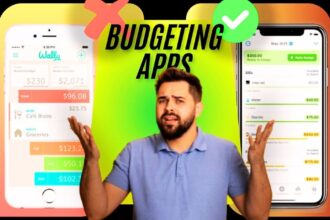Financial emergencies happen when least expected. A job loss, medical crisis, or sudden home repair can disrupt your life. Without preparation, these events cause immense stress and debt. An emergency fund is your solution. It’s a stash of money set aside for life’s unexpected turns. It cushions you against hardship, so you stay financially secure.
This guide will explain why emergency fund importance should be your top priority. You’ll learn how to build one, how much to save, and the best ways to keep it safe. Let’s dive in.
What Is an Emergency Fund?
An emergency fund is a savings buffer for urgent, unplanned expenses. It covers job loss, car repairs, or medical bills—events that demand instant cash. Instead of using credit or loans, you draw from this reserve. This keeps you from falling into debt or financial panic.
Financial experts often recommend saving at least 3 to 6 months’ worth of living expenses. This amount can vary based on your job security, lifestyle, and family needs.
Why Everyone Needs One
Unpredictable Life Events
Emergencies don’t follow a schedule. Car accidents, illnesses, or job losses can hit anytime. An emergency fund gives you a safety cushion.
Avoiding High-Interest Debt
Without savings, you may rely on credit cards or payday loans. These often have high-interest rates that trap you in debt.
Peace of Mind Daily
Knowing you’re covered relieves financial anxiety. You can focus on goals like investing, traveling, or buying a home.
Emergency Fund vs. Savings
Both are savings—but they serve different goals.
Regular savings are for planned expenses like vacations or gadgets. An emergency fund is only for true emergencies. Mixing the two can derail your long-term plans.
How Much Should You Save?
Assess Your Monthly Needs
Start by calculating your basic monthly expenses: rent, food, transport, and utilities.
Factor in Personal Risks
If you’re self-employed or have health concerns, aim for a larger cushion—maybe 6–9 months of expenses.
Start Small, Build Up
If you can’t save 3 months now, start with one month. Even $500 makes a difference in a crisis.
Where to Keep It Safe
High-Yield Savings Accounts
These accounts offer interest while keeping funds accessible. Look for FDIC-insured banks.
Money Market Accounts
They offer slightly higher returns and quick access. Just ensure your money isn’t locked away.
Avoid Investment Accounts
Stocks or mutual funds can lose value. Emergency funds must stay safe and liquid—not grow aggressively.
Emergency Fund Importance for Families
Protecting Dependents
If you have kids or aging parents, emergencies affect more than just you. A fund supports your household’s stability.
Handling Medical Crises
Families face greater risk of unexpected health issues. Emergency savings mean faster care without worrying about money.
Keeping Children in School
Job loss or injury shouldn’t disrupt your child’s education. A fund can cover tuition or basic needs temporarily.
How to Build It Fast
Automate Your Savings
Set up automatic transfers from your checking account. Even small amounts grow over time.
Cut Unnecessary Expenses
Skip takeout, cancel unused subscriptions, and redirect that money to your emergency fund.
Use Windfalls Wisely
Tax refunds, bonuses, or gift money? Put at least part of it toward your emergency savings.
Rebuilding After an Emergency
Don’t Delay Recovery
Once you use your fund, create a new plan to restore it. Make this a priority.
Adjust Your Budget
Look for temporary spending cuts to rebuild faster.
Set Realistic Timelines
You don’t need to refill it overnight. Just be consistent.
Common Mistakes to Avoid
Using It for Non-Emergencies
Concert tickets or shopping sprees? Not emergencies. Keep your fund sacred.
Keeping It in Cash
Cash is risky. It can be lost or stolen. Use insured accounts instead.
Neglecting to Refill It
Many people forget to replenish the fund after a crisis. Make rebuilding automatic.
Emergency Fund and Mental Health
Reducing Anxiety
Financial stress triggers anxiety and sleepless nights. An emergency fund eases that burden.
Promoting Confidence
You’ll face life with more courage, knowing you’re prepared.
Supporting Wellness Goals
Less stress means better physical health. It’s all connected.
Emergency Fund for Self-Employed
Irregular Income Planning
Freelancers and entrepreneurs don’t have predictable paychecks. Emergency savings cover lean months.
Business Survival
If you face equipment failures or slow seasons, a fund keeps your business afloat.
Health Coverage Gaps
Many self-employed people lack employer insurance. Emergency funds bridge the gap for medical costs.
When to Use It
Job Loss
Cover basic expenses while you search for work.
Major Car or Home Repairs
Don’t delay essential repairs. Your fund gives instant access.
Medical Emergencies
When insurance isn’t enough, the fund covers extra costs.
Emergency Fund and Inflation
Maintain Its Value
Choose accounts that earn some interest to offset inflation.
Regularly Review Needs
As prices rise, adjust your target amount to maintain buying power.
Stay Ahead of Costs
Annual reviews ensure your fund grows with your life.










